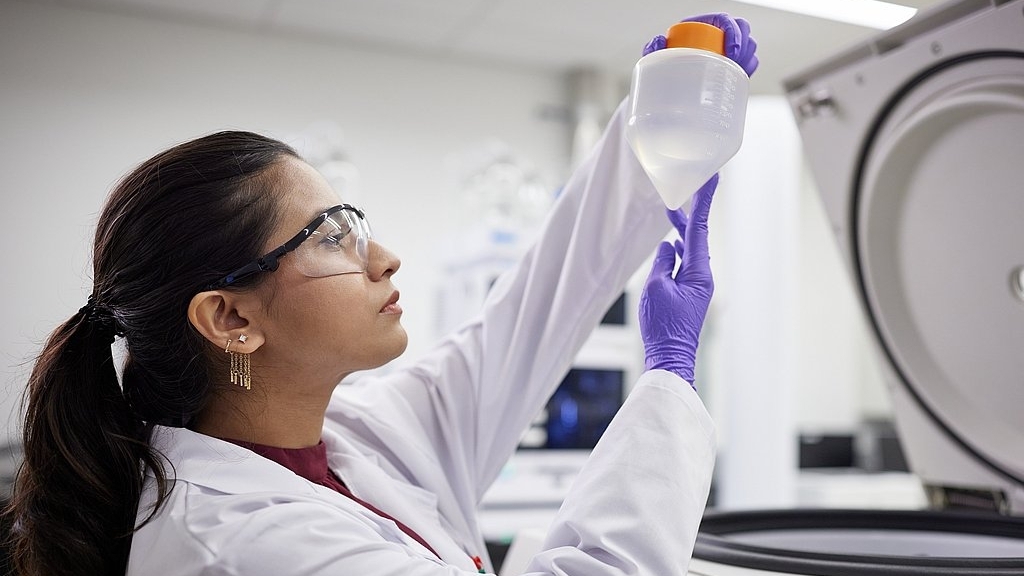Revolutionizing Global Healthcare with the ApolloDialDb™
"I’m in My Living Life Era”: Katelyn’s Double Transplant Journey
Katelyn LaConte, a Patient Advocate Manager in Massachusetts, United States, helps people share their experiences and tell their stories every day. Now it’s her turn. Katelyn’s journey from healthy nursing student to needing not one, but two, heart transplants and critical care to save her life, has become an inspirational message to live every day to the fullest.
A Full Life Ahead of Her
Growing up in Massachusetts, Katelyn rarely experienced serious illness. “Even during nursing school,” she says, “I was never really that sick. I stayed healthy, I joined an all-star cheerleading team, and I was able to keep up with my studies.”
But a few months before graduation, Katelyn began feeling unwell. She experienced severe shortness of breath, a cough that wouldn’t go away, and pain in her abdomen. At first, she assumed she was feeling run-down from keeping up with her many activities. She was both a nursing student at University of Massachusetts, Dartmouth and an intern working long hours in the emergency room, so she was often exhausted. But even when her workload eased, the symptoms didn’t stop.
Katelyn was young and generally healthy, so local doctors were unable to find a diagnosis that fit. She says, “I was told I had bronchitis or pneumonia, and when antibiotics didn’t work, they assumed it was a virus. And of course, I was told that it was just anxiety.”
Without concrete answers and graduation only a couple weeks away, Katelyn tried to push through. “I really thought I was going to make it,” she says. But everything changed on the night of her nursing pinning ceremony. She was so unwell, she realized she wasn’t going to be able to attend her graduation ceremony and headed straight for the hospital instead.
Sudden Heart Failure at Age 22
At the emergency room, Katelyn received a new diagnosis — this time, doctors thought she needed gallbladder surgery. She’d learned about this relatively simple procedure in nursing school, so this solution came as a relief. Katelyn remembers, “My parents were freaking out a little bit, but I told them, ‘Guys, this is fine! I’ll be able to walk at graduation in a few days. Everything will be okay.’” She adds, “That’s probably the last time my parents will ever listen to me.”
During surgery, the doctors discovered that Katelyn’s gallbladder was not to blame. She was in severe heart failure, likely due to a virus. Her heart was functioning at only 10% capacity. Her best chance of survival was going to be transporting her to Tufts Medical Center in Boston under the care of their advanced heart failure and transplant team.
That’s where Katelyn woke up a week later, shocked to discover that she needed heart surgery at such a young age. “It was hard to process that information at a time when I thought I had my whole life ahead of me,” says Katelyn.
She waited for her transplant for three difficult months with a lot of ups and downs, including a small stroke. Then, in August of 2011, she received a new heart. Katelyn was only 22 years old at the time of her surgery, and she bounced back quickly. “Within one month, I was attending a concert,” she says. “Within seven months, I was running a 5K. I felt so good after receiving that transplant — I was Superwoman!”
But ten years later, the symptoms started to come back.
A Second Chance at Life
“I knew something was wrong when I took my dog out for a walk and I couldn’t breathe,” Katelyn says. “I remember sitting down on the ground outside my apartment building and not knowing how I was going to get back upstairs.” She immediately went to the emergency room, where she was diagnosed with double lung pneumonia, acute kidney injury, and extremely low oxygen. Her body was so weak, she couldn’t even endure the workup needed to check on the status of her heart.
To stabilize her, Katelyn was intubated and put on continuous kidney replacement therapy (CKRT). This allowed her body to rest, remove fluids, help her kidneys heal, and get her pneumonia under control. She remained on CKRT with the NxStage® System One™ for about a week.
Over time, her kidneys and lungs recovered enough that her body was strong enough for doctors to examine her heart. Unfortunately, those tests revealed that she had developed a form of chronic rejection called coronary artery vasculopathy. This inflammation caused a dangerous narrowing in her arteries, and Katelyn needed a second heart transplant.
Katelyn put her trust in the critical care equipment and hospital staff to keep her safe. She says, “I remember I woke up and I saw the dialysis machine next to my bed. I was a little worried that I was going to be on dialysis for the rest of my life, but my nurse was an angel. I remember I got the first alarm, and she said, ‘I don’t want you to worry about this. This machine is the least complicated thing in this room.’ She really helped me, and my family feel comforted during that time.”
Katelyn continues, “I fully believe that if it wasn’t for being intubated and put on CKRT, my body wouldn’t have been strong enough to get the diagnosis I needed, let alone strong enough for a second heart transplant. Even though it was hard being on dialysis, I truly credit the NxStage System One with buying my body the time I needed for a second heart transplant.”
Living Life and Loving the Journey
In August of 2022, about a week before the anniversary of her first heart transplant, Katelyn got the call that the hospital had a match. She received another heart transplant, and after overcoming a more challenging recovery and struggles with her mental health, Katelyn feels much better.
“I’m a big Taylor Swift fan, so I like to say I’m in my Living Life Era,” she jokes. “I just traveled to Ireland and London, I ride my Peloton bike five days a week, and I do strength training and yoga. I feel like I’m in such a good place now.”
For Katelyn, working in patient advocacy brings her fulfillment. “I love what I do,” she says simply. “I feel like this is the right place for me. I’m not working on the floors as a nurse like I planned, but life throws you curveballs and you adapt.”
One of the ways Katelyn adapts is by sharing her story with patients who also use the NxStage System One that saved her life. She says, “During onboarding, I’ll mention to patients that we have something in common. The patients are open with me, so I feel I owe them the same. I’m grateful that I can tell my story and help people share theirs and feel a little less alone.”
Publication date: July 2025
Indications for use:
The NxStage® System One™ is indicated for the treatment of acute and chronic renal failure, or fluid overload using hemofiltration, hemodialysis, and/or ultrafiltration, in an acute or chronic care facility.
The NxStage® System One is also indicated for Therapeutic Plasma Exchange in a clinical environment.
All treatments must be administered under a physician’s prescription and must be observed by a trained and qualified person, considered to be competent in the use of this device by the prescribing physician.
NxView is a computer-based touch screen user interface that provides online instructions for use, summarized system information, and remote access.
NxView is contraindicated as the sole method of monitoring a patient during treatment.1
Risk information:
Kidney replacement therapy, as with any medical therapy, is not without risks. The decision of which therapy to use should be made by the physician, based on previous experience and on the individual facts and circumstances of the patient. There is no literature demonstrating one therapy is clinically better than another.1
NxView™ is a computer-based touch screen user interface that provides on-line instructions for use, summarized system information and remote access. NxView™ is contraindicated as the sole method of monitoring a patient during treatment.2
© 2025 Fresenius Medical Care. All Rights Reserved. Fresenius Medical Care, the triangle logo, NxStage, NxView and System One are trademarks for which Fresenius Medical Care AG holds rights. All other trademarks are the property of their respective owners. APM5281 Rev. A 2025-06
Related content
1 Nash et al. Journal of Critical Care. Volume 41, October 2017, pages 138-144.
2 NxStage System One Critical Care User Guide. NC4921 Rev. N. 2024-09.


